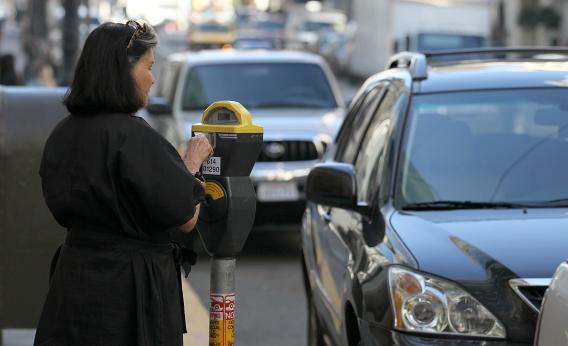Mike Konczal attempts to construct a 2 x 2 ideological classification of different modes of municipal parking provision in order to attempt a critique of a deal whereby Chicago have J.P. Morgan a 75-year lease on all its city’s parking revenues:
The Chicago deal had a number of problems with it, and is inferior to LA’s Express Park (basically a high-tech city-owned system to dynamically price spaces according to scarcity) along a number of dimensions. But I think this emphasis on the fact that Chicago created a privately owned monopoly ends up understating the main problem with deals of that sort. The basic “problem” that we’re confronting is that land is valuable, it’s bad for society when land is mismanaged, and municipalities often mismanage the land they own by turning it into dedicated underpriced parking. One possible solution, à la Express Park, is to try to manage the land better. Another solution, appropriate in many cases, is to simply sell the land. The Chicago “third way” manifests itself as inferior primarily by inserting a new layer of parasitical rent-seeking into the ecosystem.
Consider what happens if some enterprising city councilman devises a proposal that will be good for the city, but will reduce demand for downtown parking—a cost-effective way to drastically improve bus service. An actual private landowner operating a parking lot will of course be hurt by the decline in parking demand, but fundamentally if the city becomes a better place the land he owns becomes more valuable and he’ll end up simply adapting it to a non-parking use. A private owner of a parking monopoly, by contrast, has now become the sworn enemy of anything that would reduce his revenue stream. Buses, the L, bicycles, taxis, pedestrian-oriented mixed-use projects, it’s all bad bad bad bad for business.
Long story short, where selling land to a private owner is viable it’s something that deserves consideration (note that since cities tax landowners but don’t tax themselves, this is a double win for public finance) but when it’s not then the city really ought to just try to do a good job of managing the land. Creating special purpose franchisees takes a political economy problem and makes it worse.
